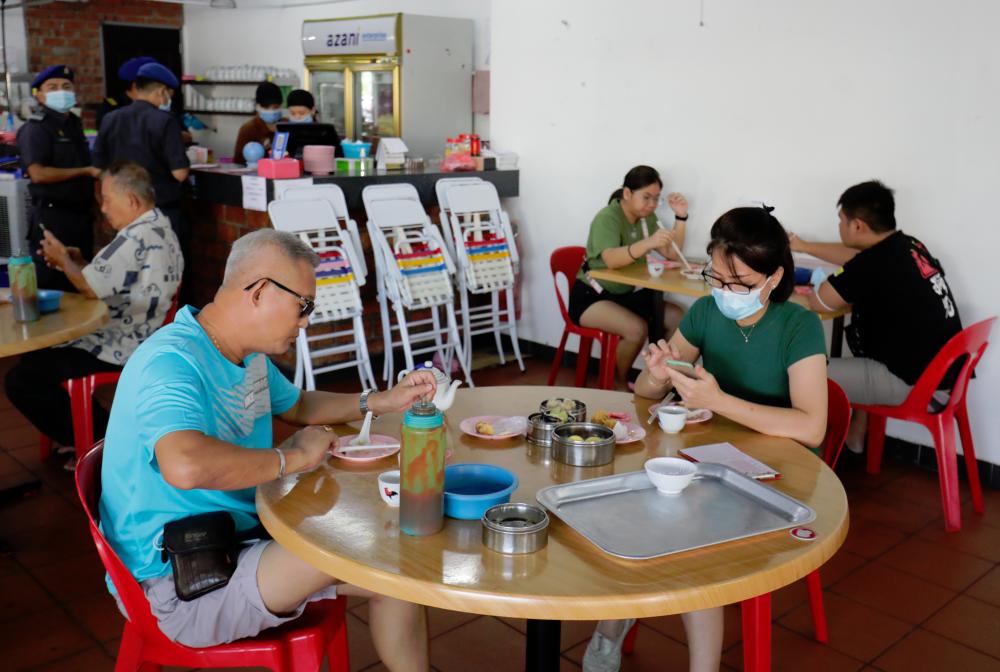PETALING JAYA: Restaurants must be reasonable and not take advantage of their customers, especially in these difficult times, said the Muslim Restaurant Owners Association of Malaysia.
Its president Datuk Jawahar Ali Taib Khan said costs keep changing all the time but the actual prices of raw materials have not come down, so it is not easy for restaurants to reduce prices, although many have tried to maintain them at pre-pandemic rates.
He said before the pandemic, chicken was sold in the RM3 to RM4 range but today, it stands at RM8.90.
He added that most of his association members have not increased prices to match the high costs and have tried to keep prices reasonable.
“It is important for restaurants to realise that if they take advantage of their customers, people will stop patronising their outlets. They have to put the community first. A self-service concept with free drinking water will help bring down operating costs and food can be sold at lower prices.
“Location and rental also play a major role in the cost of food. In Sabak Bernam, for example, a shoplot can be rented for RM2,000 to RM2,500 but in Bangsar, it is in the region of RM33,000. Therefore, where it is cheaper, a roti canai can be sold for RM1 but not in Bangsar.”
He said other factors that add to the cost of food are the electricity bill, which is usually over RM6,000, salaries and accommodation rental for workers.
Jawahar Ali said food must be sold at reasonable prices and restaurants should aim for volume and not high prices.
“It would be better to sell 300 plates of nasi lemak at a reasonable price than 100 plates at a high price.”
He also commented on a public complaint that is making its rounds on social media concerning a Port Dickson restaurant that charged RM2 for a glass of warm water.
He said such prices are usually seen at tourist spots and the restaurant referred to in the complaint should not charge that much for a glass of warm water, no matter where the customer is from.
“The drink should be given for free. An outlet at the KL International Airport that is patronised by airport workers and individuals who are not flight passengers can still sell a cup of tea at RM2 today, so there is no reason to charge RM2 for warm water in Port Dickson.
“The display of prices is always a must. But it must also be clearly stated. For example, the prices of big prawns or fish head could be from RM30 to RM100 on the price list. The actual price must be based on weight and size, and prominently displayed, so customers know how much they would be paying.”
Malaysian Indian Restaurant Owners Association president J. Govindasamy agreed that raw material, rental, staff salaries and electricity bills contribute to food pricing.
He said restaurants are finding it harder to make ends meet as costs keep going up, adding that previously, nett profits would be about 15% but this is no longer true and most restaurants are not making enough.
He said staff salaries have also risen from RM1,200 to RM1,500, and this means overtime costs have also gone up, impacting the restaurant’s overall operating expenditure.
“Landlords are not bothered how a restaurant is doing as many of them have raised their rental by 20% to 25%, and it does not matter where the restaurant is located. The price of food per plate is determined by the quantity of raw materials the restaurant can purchase and at what cost.”
He said the idea of charging RM2 for a glass of warm water makes no sense but a 50-sen charge is reasonable because of the cost involved in preparing it (water, electricity, gas, labour, usage of equipment and utensils).
Govindasamy said restaurants cannot serve raw boiled water, as it has to be filtered first, boiled and then served.
There is also the cost of replacing the water cartridge because its life span is based on usage.
“The boiler needs gas and maintenance too, which will be included in the operation costs.”














